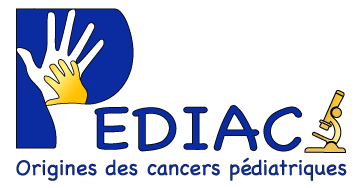TeAM Florent De Vathaire
Epidemiological of ionizing radiation
The “Radiation Epidemiology” Team of U1018 is a team specialized in the epidemiological of ionizing radiation and in the risk factors of secondary cancers. The team focuses most of its activity on the epidemiological and molecular-epidemiological (biomarkers research) evaluation of the health effects of radiation as well as on all the aspects of cancer survivorship. This activity includes the constitution and the follow-up of cohorts of former patients, as well the realization of case-control studies in general population.
The team activity is facilitated by its implantation in Gustave Roussy, whose quality of the medical records, and ability in structuring translational research, are strengths. The team is strongly involved in International and European networks and projects on childhood cancer survivorship.
The team developed a study on functional test of DNA repair that could well afford to assess the risk of second cancers in patients treated for childhood cancer and adapt therapeutic strategies to the genetic profiles of the subjects. We have an experience in studying the role of the DNA double-strand breaks (DSBs) repair in the risk of second cancer using a bioassay with γH2AX (a protein known to be rapidly phosphorylated after irradiation and is a marker for the presence of DNA-DSBs) intensity as a surrogate endpoint.
The experience of the team has recently been enriched through our involvement in various fundamental projects. Through their participation in bioinformatics analysis of genetics and exome sequencings they have gained knowledge of quality control, variant calling procedures. Through their experience in GWAS analysis and exome sequencing, they have developed their knowledge in the analysis of GWAS data and rare genetic variants (minor allele frequency, MAF <5%). For the latter the will need to use appropriate methods for the analysis of dispersed data. A certain many approaches have recently been developed for this purpose, and they require aggregation analysis of variants to increase their power. In addition, the SKAT’s newest version allows adjustment on co-variables and the concomitant analysis of rare and common variants.
